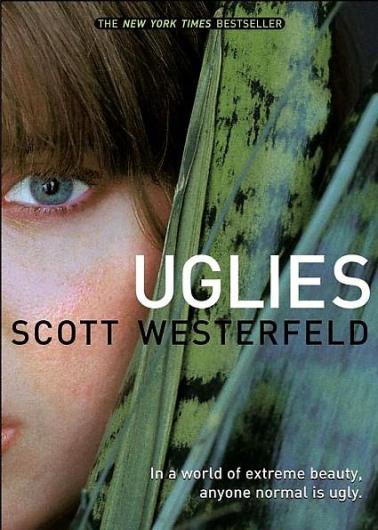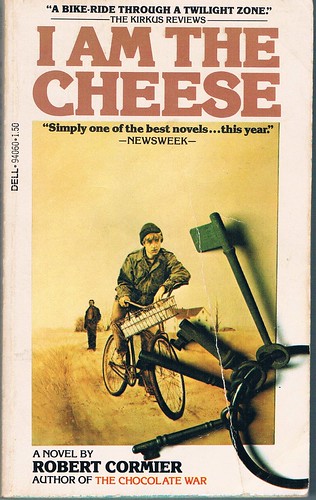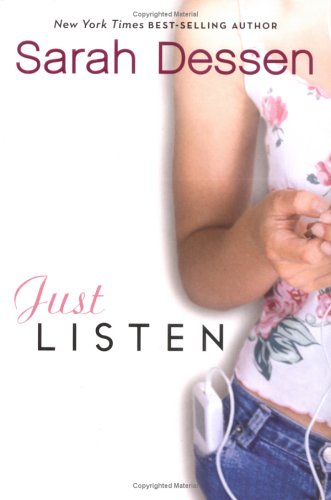If you’ve been following my blog for even a little while, then you know at least two things about me: I studied English at university and I am the kind of person who will happily lose sleep over characters and plot twists. You see, I’m a lit lover through and through. As such, I owe a lot of what I know and love to the lessens that I’ve learned from printed lines on bound pages, the stories that changed my life.
On that note, here’s to literary game-changers and the marvelous people who create them.
Thank you!
——
Harry Potter and the Sorcerer’s Stone by J.K. Rowling

By the time I graduated from kindergarten in 2000, I was a voracious reader and everybody knew it. But, somehow, Harry Potter and the Sorcerer’s Stone, which I didn’t read until 2001, feels like the book that started it all for me. It was the book that made me delve into fantasy and science fiction, the book that gave me a fan community to become immersed in, and the book that taught me how to do life. But, more than anything else, this was the book that led to a series of books that transformed my generation and made us all believe in magic.
Each of Rowling’s characters taught me something about people and the lives we all must lead. In Hermione, I learned that intelligence, loyalty, bravery, feminism, and drive can take you far. In Severus, I learned that everyone can change, some causes are worth living and dying for, and a good person is not necessarily a nice person. In Dumbledore, I learned that pursuing the “greater good” sounds lovely in theory but, people will get hurt along the way (i.e. Ariana and Harry). And, in Harry, I learned that love can change everything.
The Bar Code Tattoo by Suzanne Weyn

I haven’t been able to shut up about The Bar Code Tattoo since I ordered it through a Scholastic sale in 2004 when I was 10 years old. I even read a bit from it in a YouTube video because it was “the first book I could get my hands on.” (I totally didn’t edit out the time it took me to find that book in particular…) I have quite literally been blabbing about this book for years—I even got a tweet back from the author after I mentioned the renewed relevance of the “big brother is watching you” plot line in modern-day America.
Ultimately, in the primary character, Kayla (hey, that’s 71% of my first name), I learned to seek the truth with determination and work to create the life I wish to lead. However, as my introduction to dystopian fiction, Weyn is also responsible for teaching me to be aware of the world I live in, to question how today’s decisions will affect tomorrow’s conditions, and to discover my own identity instead of letting my community define me.
Uglies by Scott Westerfeld

Uglies is a story with many layers. Mostly obviously, there is snazzy technology à la science fiction and a dystopian world with Big Brother government, which is fascinating and terrifying all at once. Underneath all of that though, there is an ongoing discussion of the big problems that plague humans regardless of time and space: personal identity, individual freedom, and conceptions of beauty. You know how English teachers and professors always tell students to “unpack” or “bleed” the text? I could write a 20+ page paper “unpacking” this story. This tale never comes up empty.
Westerfeld said (through the character of David) that “what you do, the way you think, makes you beautiful,” and that statement resonates with me more every day of my life, particularly as I begin to bridge the gap between being a student and a professional. Whenever I question who I am or what I’m doing, I remember that I’m no different from Uglies and the characters within it—there is a whole world inside of me just waiting to be unpacked.
I Am the Cheese by Robert Cormier

I grew up with a mother who studied psychology. What this means is that I’ve spent my entire life listening to impromptu psych lectures, as well as having all of my choices and ideas psychoanalyzed. Don’t get me wrong, it’s certainly been interesting—as a child it was awe-inspiring because, well, my mother is undeniably a brilliant woman—but, I didn’t truly understand the concept of psychology until I read I Am the Cheese (and The Chocolate War immediately thereafter) around the beginning of middle school.
The psychological journey of Adam (aka Paul) led me to consider the core differences between people and how our experiences can define the past, present, and the future equally. In Cormier’s story (stories, really) I found perspective. As a result, in Adam’s pursuit of his father, I also became closer to my own mother, gaining a better understanding not just of why she would study psychology, but also why she considered her psychology-related knowledge and experiences to be eternally relevant.
Just Listen by Sarah Dessen

In only 383 pages of print, Dessen tackled familial relationships, eating disorders, sexual assault, anger management, high school dynamics, friendship, and so much more. Then, to make the story all the more important, Dessen showcased the metaphorical power of silence and the human inability to quiet the heart. The story doesn’t rely on a grand setting, a large character collection, or even sublime escapades; instead, the author just conveyed what it means to not think or judge, and instead “just listen” to what your heart is saying.
Music wasn’t precisely the point of this book yet, somehow, this book intrinsically altered my relationship with music. Music was just the tipping point of the lessons this book taught though. Through Annabel, I learned that secrets are heavy to hold, truths can be hard to share, and people are not necessarily the “characters” they portray to the rest of the world. Through Owen, I learned that music can be an escape or a channel, depending on which you need, and the truth should be shared, even if you have to “rephrase and redirect” to get your meaning across.
Leaves of Grass by Walt Whitman

For most of my sophomore year of high school, I spent every spare second I had in the library or reading a novel in an empty classroom. I carried a veritable library of ARCs in my backpack and I talked publishing with my journalism teacher (who became my yearbook supervisor). In the midst of that odd situation, I discovered the then-newly-published novel Paper Towns by John Green. I loved that book like it bled and breathed, but mostly I loved the world it opened me up to in its fleeting references: Walt Whitman’s poetic skill and the utterly intoxicating “Song of Myself.”
Whitman spent 400 poems trying to define and describe life before ultimately coming to the conclusion that people are large and “contain multitudes.” In the sage conclusions of a long-dead man and in that time of intense personal growth, Whitman’s words enabled me to be comfortable with being a bit “odd,” living life like a “dance” when the “fit” of change was “whirling me fast.” Not to mention, it was Whitman’s poetic encouragement to explore one’s self that led me to create a blog called “mylifeinverse” or “my life in verse,” despite the fact that I don’t generally write poetry.
The Confessions of St. Augustine by St. Augustine

In this single book, often touted as a building block of the Christian faith, St. Augustine managed to make absolutely everything in life—every experience, every thought, every desire—seem like a mortal sin. More than any other book I’ve ever read, Confessions pissed me off and made me wish for a time machine so that I could go back to ancient times and deliver a punch in the face to the author. It was simply infuriating to see an author turn life overall into something so thoroughly ugly in the name of defending religion and ethics.
Despite all of that, St. Augustine’s Confessions taught me about the manipulative power of religions (not that all religions are manipulative), the diversity of moral and ethical systems, the tedium of entirely introspective and self-deprecatory works, and the ability of authors to make readers feel like they’re being castigated. That being said, this is the only book I have ever thrown away—quite literally, it went into the trash bin—and I don’t even feel guilty about it.
Quiet: The Power of Introverts in a World That Can’t Stop Talking by Susan Cain

Susan Cain rose to fame as a self-proclaimed “public introvert” who utilized her incredibly astute observations about her own nature to tell the world (in a TED talk) about the superpowers of introverts and bring about positive vibes regarding the more “quiet” portion of the population. Where the majority of self-help and introspective self-analytical literature characterize introversion as something one must compensate for by adopting the seemingly superior characteristics of extroverts, Cain successfully presented introverts and extroverts as separate but equal.
As a young woman just finishing up my undergraduate degree and an undeniable introvert, Quiet spoke to my experiences with and worries about existing in a predominantly extrovert-positive world. I wouldn’t be nearly as confident about the very real and very necessary role I can fill in a work environment—particularly in the extrovert-oriented career field I’m aiming for—if I had not read this book at precisely the time that I did.
Divergent by Veronica Roth

Just like The Bar Code Tattoo trilogy and Uglies trilogy, Divergent is the first novel in a dystopian trilogy with a badass female main character and slightly less important, but amusing and often game-changing, minor male characters. There are certainly strong feelings of girl power in Tris’ gradual and hard-fought transformation from the meek and compliant person others want her to be to the curious and brave person she truly is “on the inside.” And, well, what 21-year-old young woman doesn’t need a bit more girl power in her life?
Throughout my life I’ve always been told to “be myself” and “live for me” but, it wasn’t until I read Divergent that I began to understand that who you are can change, whether through sheer force of will or evolutionary circumstances, and you’re no less you for changing. Tris made me excited to transform from what I was as a child and a teenager, by upbringing or some sort of default, and become who I want to be. In that character I found the courage to make myself new while always remembering the past.
Fangirl by Rainbow Rowell

If someone wrote a story about my first year of university, it would read much like Cath’s tale of college confusion, without the lovely (yet delightfully and realistically flawed) boy, twin sister, and supportive roommate. In essence, my first year of university, during which I lived on campus for a semester, was a roller coaster of success and failure, topped with discomfort regarding my degree choice and a complete inability to engage with people my age. It wasn’t the most pleasant experience until I reevaluated the situation, charted a new course, and started (sort of) fresh…just like Cath.
Rainbow Rowell provided me with someone who was comfortingly familiar, who struggled and learned to carry on in the same ways that I did as a new university student. This darling author and her characters validated my love of fan culture and fanfiction, reassuring me that fanfiction is real fiction and there is a beautiful community filled with wonderful people who enjoy being fans just as much as I do. Even more importantly, Cath taught me that, in being my awkward and untraditional self, I’m not losing out on anything but instead finding my own, different adventures.
——
If you’re feeling talkative, comment below with the books (YA or otherwise) that have changed your life!